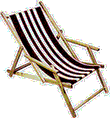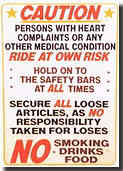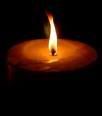Wednesday, April 04, 2007
The book I haven't written
For years, I've wanted to write a book about growing up in my family. What makes them so special that anyone else would want to read such a book? That's the challenge. Other writers succeed with families less interesting. Here's an example: One day my father came home with a World War I era ship deck cannon & installed it in the basement. It was from a freighter, but it looked like the kind you see on the bows of submarines in old movies. When you came down the basement steps & turned left, its muzzle pointed right at your head. I was renowned among friends & aquaintances for having this "toy" in the cellar. Friends would bring friends who had heard rumors. When Dad remarried, he moved the gun to a bluff overlooking Manasquan River behind his wife's shore house & fired a blank charge every Saturday at Noon.
That's anecdotal, & I didn't describe Dad. but my family was theatrical, still is. Later, I began understanding how we are all assigned parts to play, even before we are born. We play those parts all our lives, to our benefit or not.
I'm aware that there are three contending points-of-view to anything I write, all from older siblings. There are huge holes in the backstory, not only for events in the years immediately before I was born, but also the histories of my grandparents. When asked, Mom talked a bit about her childhood, which was privileged during the Great Depression. Dad had little he wanted to say about his - he didn't go hungry either, but his attitude generally prevailed. There was a web of family in Philadelphia that remains a mystery to me, & was, in fact, pretty much a mystery to Dad, too. Late in his life he began visiting an old aunt, a retired nun, who reputedly knew everything, including the scandalous stuff. Little of what he discovered got back to me. Dad was a preservationist of things, not of memories. Things do not have memories. "No ideas but in things," wrote poet William Carlos Williams.
My maternal grandmother, Nana, died when I was 20, an age when hardly anyone cares about their family, & about three years before I quit the stronger mind-altering substances & gave up my dream of being a rich rocker. Had she lived, I'm certain I would've visited her quite often in Atlantic City & asked many questions. Although I hadn't seen her much in the three years before she passed, she was pleased that I was seriously involved with an Irish-Catholic girl from Roselle Park. For her, that was cause for hope, & kept me on her good side. (& yes, for the right girl I would have raised children as Catholics, I didn't believe it had to permanently ruin them).
Subsequently, it's been bits & pieces of writing. Idealized stories, peculiar poems, all of which have told me this book would not be a straight non-fiction narrative. Facts are clay. For a long time I believed I didn't have enough of the facts. Now, looking at my journals, poems, files of fragmentary prose, this blog, a box of old floppy disks - heaven knows what's on those, it's probably more a task of assembling. But assemble into what form?
That's anecdotal, & I didn't describe Dad. but my family was theatrical, still is. Later, I began understanding how we are all assigned parts to play, even before we are born. We play those parts all our lives, to our benefit or not.
I'm aware that there are three contending points-of-view to anything I write, all from older siblings. There are huge holes in the backstory, not only for events in the years immediately before I was born, but also the histories of my grandparents. When asked, Mom talked a bit about her childhood, which was privileged during the Great Depression. Dad had little he wanted to say about his - he didn't go hungry either, but his attitude generally prevailed. There was a web of family in Philadelphia that remains a mystery to me, & was, in fact, pretty much a mystery to Dad, too. Late in his life he began visiting an old aunt, a retired nun, who reputedly knew everything, including the scandalous stuff. Little of what he discovered got back to me. Dad was a preservationist of things, not of memories. Things do not have memories. "No ideas but in things," wrote poet William Carlos Williams.
My maternal grandmother, Nana, died when I was 20, an age when hardly anyone cares about their family, & about three years before I quit the stronger mind-altering substances & gave up my dream of being a rich rocker. Had she lived, I'm certain I would've visited her quite often in Atlantic City & asked many questions. Although I hadn't seen her much in the three years before she passed, she was pleased that I was seriously involved with an Irish-Catholic girl from Roselle Park. For her, that was cause for hope, & kept me on her good side. (& yes, for the right girl I would have raised children as Catholics, I didn't believe it had to permanently ruin them).
Subsequently, it's been bits & pieces of writing. Idealized stories, peculiar poems, all of which have told me this book would not be a straight non-fiction narrative. Facts are clay. For a long time I believed I didn't have enough of the facts. Now, looking at my journals, poems, files of fragmentary prose, this blog, a box of old floppy disks - heaven knows what's on those, it's probably more a task of assembling. But assemble into what form?
Labels: about writing, growing up
Comments:
<< Home
"If a nation expects to be ignorant and free, in a state of civilization, it expects what never was and never will be." Thomas Jefferson
Go ahead and do it.
I could give you a dozen reasons, about why the stories are important and you're a good writer and how it will all come together and blah blah blah. But it really comes down to this:
Will you ever regret having written a book, or will you regret not having written a book?
Go ahead. Put it all together.
I could give you a dozen reasons, about why the stories are important and you're a good writer and how it will all come together and blah blah blah. But it really comes down to this:
Will you ever regret having written a book, or will you regret not having written a book?
Go ahead. Put it all together.
I wouldn't regret writing the book. I also don't strongly regret not writing it. My fragmentary writing seems to reflect the fragmentary quality of the family itself. What had so much personality - almost a clannishness - on the surface was actually so weakly connected that it no longer exists at all. The only "good" ending is the book itself. In a way, I already wrote the story metaphorically in "Boardwalk."
Post a Comment
<< Home















